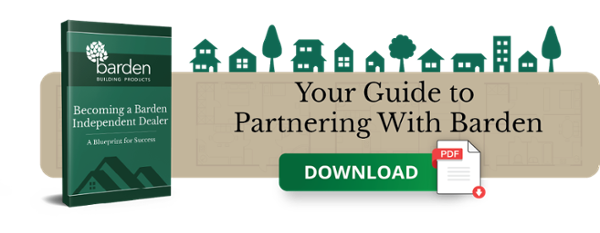
The lifeblood for any custom home builder’s or dealer’s company is the extent of its backlog of upcoming projects.
It’s simple math for stability: the greater a backlog, the more comfortable a custom home dealer or builder can feel about their company’s immediate and long-term outlook.
Building up a backlog is in some respects no different than constructing a home. It takes a certain level of skill, patience, and tenacity.
How do you become a custom home builder or dealer with a long and growing list of clients? By mastering the art of selling and being prepared.
6 Tips for Building a Pipeline of New Projects
A robust sales strategy that attracts new clients and closes deals doesn't just happen. A sales pipeline is only as strong as the work that goes into developing and maintaining it.
The most successful custom home builders and dealers put in plenty of time to hone their sales skills and put together a strategy that delivers. Their strategies include:
- Having a marketing plan
- Leveraging a partnership with a custom home materials supplier
- Being the expert
- Developing a sales acumen
- Using an efficient construction method
- Having references ready
1. Having a Marketing Plan
While word-of-mouth and a solid reputation are indeed important for anyone working in the custom home industry, both can only take a company so far. That’s where a marketing plan comes in.
When it comes to marketing, it's not so much doing one big thing – such as a billboard next to a busy highway – that can move the needle. A successful marketing plan uses a combination of small tactics that complement each other. Common elements of marketing plans include:
- Print advertising
- Online and social media advertising
- Putting up lawn signs and fencing banners on your project sites
- Sending an email newsletter to clients and prospects
- Direct mailing neighborhoods or areas you're hoping to earn more business in
- Sponsoring community events
- Joining the local chamber of commerce and other local organizations
2. Leveraging Partnerships with Suppliers
Sometimes the partners a custom home builder or dealer works with and sources materials from are just as valuable as the work that they do.
With the right partners (those who want to see their affiliates succeed) the working relationship is mutually beneficial. Both parties are able to rely on each other for more than a transactional relationship. Together, they support each other for growth.
Many affiliate programs offer custom home builders and dealers tools for success, such as:
- Marketing materials
- Mentoring
- Brand recognition
- Industry insights and trend reports
3. Being the Expert
When a builder or dealer makes first contact with a prospective customer, first impressions are important.
Speaking confidently and having command over your line of work is critical to making a positive impression and maintaining a relationship. Being unprepared or seeming unsure of what you do to make a client’s custom home a reality does the exact opposite.
A good builder or dealer should put themselves in the prospect's shoes: Why would they sign a contract with a builder or dealer who doesn’t seem equipped to do the job?
4. Developing and Honing a Sales Acumen
When we say "sales acumen," we're not talking about utilizing any pushy snake-oil salesman tactics. To our last point, a fruitful sales acumen is about knowing the answers to the questions that an interested client might have.
Builders and dealers should be able to clearly and directly communicate the value of a custom home to empower any prospect to make the decision that's best for them. Building a custom home is often a once-in-a-lifetime decision for a client. Being understanding, responsive, and knowledgeable goes a long way toward closing the deal.
5. Using an Efficient Construction Method
In order to truly sell services, the delivery method needs to have a competitive advantage. There's nothing worse than generating some buzz only for prospective clients to learn that the building schedule or budget is unpredictable because of how long it takes a firm to build.
For the custom home builder looking to always be ready for a new project, your current project shouldn’t prevent you from taking on new clients. Inefficiencies in construction add up to lost time and fewer opportunities to work. The faster you’re able to build a home, the sooner you’re able to move on to the next.
The panelized construction method is one of the most efficient ways to build a home for both the client and the builder or dealer. In addition, panelized construction opens the doors to completely customizing a home to give clients exactly what they want.
6. Having References Ready
One of the biggest rewards of consistently completing successful projects is the list of previous customers who are more than willing to talk about their experiences.
A satisfied client’s high praises can go a long way with a prospect who’s on the fence.
Asking for referrals should be part of your closeout process for any project. Not only does this open the doors to new clients via happy customers, but it’s also free.
Building a Backlog for a Busy Custom Home Business
Just as houses don’t build themselves, successful custom home builders or dealers don’t just happen. Growing a backlog of projects means being prepared to sell, and sell with confidence.
With a sales strategy ready to go, building more homes and positioning your company for long-term success is much easier.
Take Your Custom Home Business to the Next Level
Download our e-book to learn how Barden Building Products’ independent dealership program can help you close more deals and grow your business.


